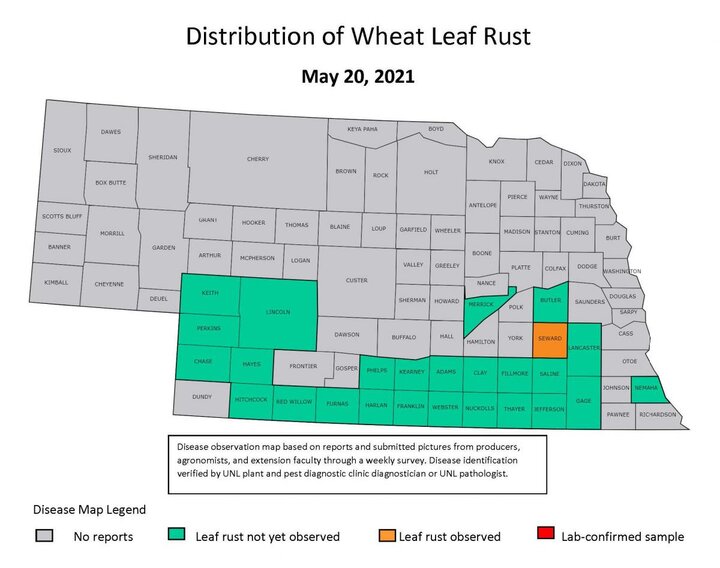The wheat crop condition was good to excellent (Figure 1) in the majority of fields surveyed this week in south central and southwest Nebraska. Growth stage ranged from boot to heads starting to emerge. Stripe rust was confirmed from the surveys and reports in four additional counties, bringing the total number of counties with confirmed stripe rust to 15 (Figure 2). Leaf rust was reported in one county (Figure 3). Both diseases were at trace to low levels. Low to moderate levels of fungal leaf spot diseases (Figure 4) and low levels of wheat streak mosaic virus (Figure 5) were observed in some of the surveyed fields, but the majority of fields had only trace levels of disease. All fields surveyed were wet, indicating recent rainfall.


Management
Wetness increases the risk for disease development. In addition to foliar diseases (fungal leaf spots and rusts), the risk for Fusarium head blight (scab) can increase significantly if moderate to heavy rainfall frequently occurs before and after heading. For fields that have not been sprayed, are nearing heading, and have trace to low levels of fungal foliar diseases, it is recommended to wait until full heading to early flowering and then apply a fungicide that has good efficacy on scab. Such a fungicide will also effectively control fungal leaf spot and rust diseases. Fungicides with good efficacy on scab are Prosaro, Caramba, Miravis Ace and Proline. A good resource for monitoring the risk of scab in your area is the Fusarium Risk Tool. Read a recent blog post on protecting wheat from Fusarium head blight.



